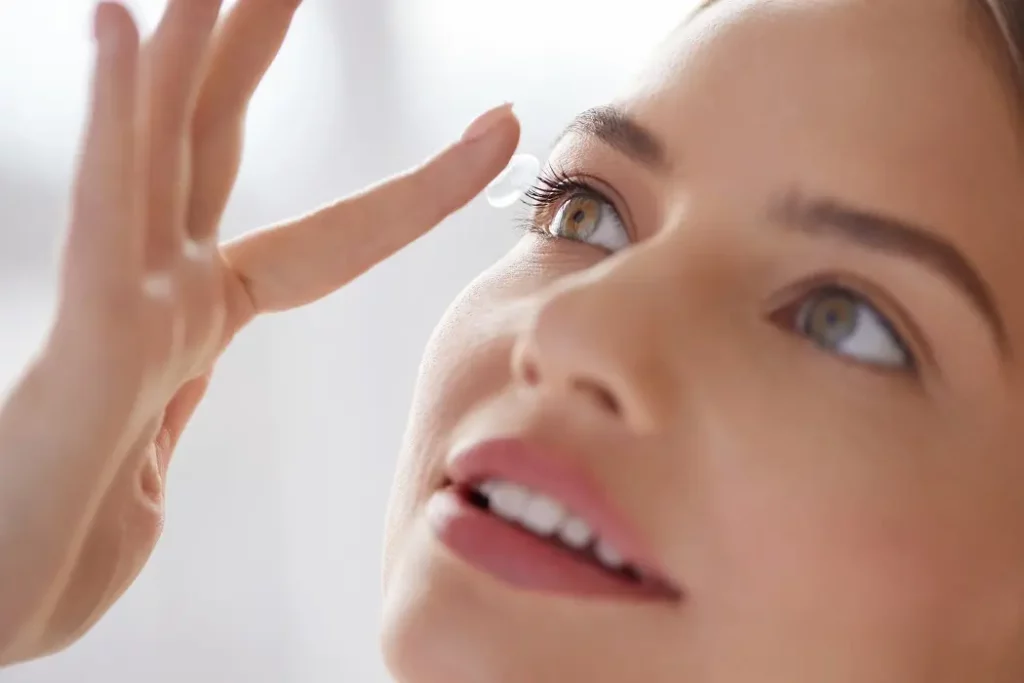All Categories
Featured
Low vision is a condition that substantially influences day-to-day activities like reading, driving, or acknowledging faces, despite rehabilitative lenses. For people facing such challenges, low vision recovery offers a pathway to reclaim freedom and enhance quality of life. Allow's explore the available choices for low vision rehab and how they assist individuals browse the world more confidently.
Recognizing Low Vision Rehab
Reduced vision rehab is a customized solution created to optimize the functional abilities of individuals with permanent vision disability. This multidisciplinary strategy entails analyses, training, and devices customized to every individual's special demands. The goal is to equip individuals by enhancing their staying vision and mentor approaches to adapt to their atmosphere.
Trick Options in Reduced Vision Recovery
Comprehensive Eye Exams
A low vision professional performs in-depth assessments to recognize the degree of vision loss and identify suitable interventions. These exams focus on figuring out the person's aesthetic acuity, field of vision, and light sensitivity.
Assistive Instruments and Innovation
A vast array of modern technologies and devices are readily available to assist individuals with low vision:
Magnifiers: Handheld, stand-mounted, or digital magnifiers help enlarge text or photos.
Telescopic Lenses: Useful for distance viewing, such as viewing TV or analysis road indicators.
Display Viewers: Software application that reads out loud the message on a display, aiding those that deal with reading.
CCTV Systems: Closed-circuit televisions amplify printed product or objects for less complicated watching.
![]()
Mobile Phone Applications: Applications like Be My Eyes or Seeing AI give real-time support and descriptions of environments.
Training Programs
Vision rehab includes training to optimize making use of remaining vision and adjust to brand-new devices:
Orientation and Movement Training: Helps individuals navigate unfamiliar rooms and make use of canes or overview dogs efficiently.
Daily Living Skills: Instructs strategies for food preparation, brushing, and other daily tasks with restricted vision.
Visual Abilities Educating: Involves workouts to strengthen field of vision or enhance focus.
Environmental Modifications
Adapting the home or office can substantially improve independence:
Mounting brighter lighting and contrasting shades.
Adding responsive pens to devices.
Setting up furniture to develop clear courses and lower obstacles.
Therapy and Emotional Support
Vision loss can be mentally tough. Support groups and counseling solutions help people handle the psychological impact and develop durability.
Who Supplies Reduced Vision Recovery?
Reduced vision rehabilitation services are offered by:
Reduced Vision Specialists: Optometrists or ophthalmologists with extra training.
Job-related Specialists: Professionals that focus on improving day-to-day performance.
Rehab Therapist: Experts who assist with psychological and emotional support.
![]()
Verdict
Reduced vision recovery is a lifeline for those living with considerable vision loss. With the right tools, training, and assistance, people can lead satisfying and independent lives. Whether it's via advanced modern technologies, tailored training programs, or emotional support, the options offered today guarantee that no one needs to deal with reduced vision alone. Think about getting to out to a low vision professional to discover these transformative rehabilitation services. if you or an enjoyed one is experiencing vision obstacles.
Recognizing Low Vision Rehab
Reduced vision rehab is a customized solution created to optimize the functional abilities of individuals with permanent vision disability. This multidisciplinary strategy entails analyses, training, and devices customized to every individual's special demands. The goal is to equip individuals by enhancing their staying vision and mentor approaches to adapt to their atmosphere.
Trick Options in Reduced Vision Recovery
Comprehensive Eye Exams
A low vision professional performs in-depth assessments to recognize the degree of vision loss and identify suitable interventions. These exams focus on figuring out the person's aesthetic acuity, field of vision, and light sensitivity.
Assistive Instruments and Innovation
A vast array of modern technologies and devices are readily available to assist individuals with low vision:
Magnifiers: Handheld, stand-mounted, or digital magnifiers help enlarge text or photos.
Telescopic Lenses: Useful for distance viewing, such as viewing TV or analysis road indicators.
Display Viewers: Software application that reads out loud the message on a display, aiding those that deal with reading.
CCTV Systems: Closed-circuit televisions amplify printed product or objects for less complicated watching.

Mobile Phone Applications: Applications like Be My Eyes or Seeing AI give real-time support and descriptions of environments.
Training Programs
Vision rehab includes training to optimize making use of remaining vision and adjust to brand-new devices:
Orientation and Movement Training: Helps individuals navigate unfamiliar rooms and make use of canes or overview dogs efficiently.
Daily Living Skills: Instructs strategies for food preparation, brushing, and other daily tasks with restricted vision.
Visual Abilities Educating: Involves workouts to strengthen field of vision or enhance focus.
Environmental Modifications
Adapting the home or office can substantially improve independence:
Mounting brighter lighting and contrasting shades.
Adding responsive pens to devices.
Setting up furniture to develop clear courses and lower obstacles.
Therapy and Emotional Support
Vision loss can be mentally tough. Support groups and counseling solutions help people handle the psychological impact and develop durability.
Who Supplies Reduced Vision Recovery?
Reduced vision rehabilitation services are offered by:
Reduced Vision Specialists: Optometrists or ophthalmologists with extra training.
Job-related Specialists: Professionals that focus on improving day-to-day performance.
Rehab Therapist: Experts who assist with psychological and emotional support.

Verdict
Reduced vision recovery is a lifeline for those living with considerable vision loss. With the right tools, training, and assistance, people can lead satisfying and independent lives. Whether it's via advanced modern technologies, tailored training programs, or emotional support, the options offered today guarantee that no one needs to deal with reduced vision alone. Think about getting to out to a low vision professional to discover these transformative rehabilitation services. if you or an enjoyed one is experiencing vision obstacles.
Latest Posts
Affordable Deluxe: Discover the Benefits of Laminate Flooring
Published Apr 17, 25
1 min read
Experience Waterside Dining at Deauville Inn's Sunset Deck
Published Apr 17, 25
1 min read
Discover the Significance of Coastal Dining
Published Apr 17, 25
1 min read